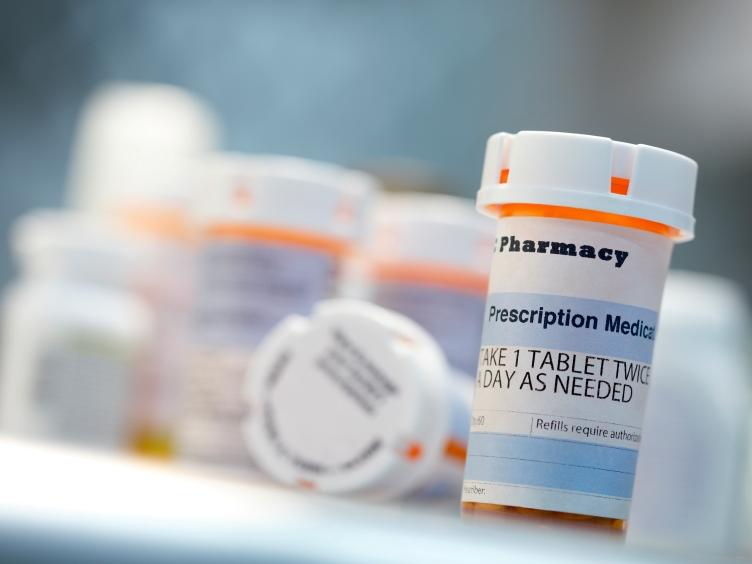
Section Branding
Header Content
Drug Thefts Rising After Georgia's Pill Mill Crackdown
Primary Content

A tall man wearing a green baseball cap recently entered a CVS pharmacy in Oakwood, intent on robbery.
The man was not looking for cash. Instead, according to police, he demanded that the pharmacist give him Lortab and Percocet painkillers.
He then grabbed drug bottles and prescription bags belonging to customers before fleeing the store, police said.
The same man is being sought in a similar robbery at a Flowery Branch pharmacy.
Pharmacy officials say such robberies are occurring with greater frequency in Georgia. Ironically, the officials link the increase to the state’s recent success in cracking down on the scourge of “pill mills’’ in the state.
Pill mills are clinics or doctor’s offices that prescribe oxycodone and other powerful narcotics without a legitimate medical purpose. Their customers are often addicts or even drug dealers.
Georgia became a pill mill magnet after neighboring states, including Florida, passed tougher laws regulating pain clinics.
But last year, the Georgia General Assembly passed legislation to get rid of pill mills, requiring pain clinics to be licensed by the state medical board and owned by physicians. The state also launched a prescription drug monitoring program, aiming to cut down on the abuse of opioid painkillers.
A spokeswoman for state Attorney General Sam Olens said this month that the pain clinic licensing and the drug monitoring program “have reduced the number of rogue pain pill clinics by making such clinics more difficult to operate.’’
These initiatives also enabled aggressive enforcement action through joint investigations by the Georgia Drugs and Narcotics Agency, the DEA, GBI, Georgia Medical Board, and local agencies, said the spokeswoman, Lauren Kane.
Since the pill mill law went into effect, the head of the State Composite Medical Board says that 158 pain management clinics have been licensed. Three applications have been denied, 40 are pending, and four have been withdrawn, said LaSharn Hughes, executive director of the board.
Looking for solutions
The abuse of opioid painkillers is a major national problem.
The federal government says prescription painkillers are the nation’s No. 1 drug epidemic. More than 16,000 people die annually in the United States from opioid painkillers — more than from heroin and cocaine combined.
Nationally, sales of prescription painkillers per capita have quadrupled since 1999 — and the number of fatal poisonings due to prescription painkillers has also quadrupled.
Per capita prescription sales of oxycodone in Georgia tripled between 2000 and 2010, the Wall Street Journal reported last year.
Laws in Florida and Georgia have made a difference. But unfortunately, when pill mills are eliminated, people who have addictions will look elsewhere for drugs, pharmacy officials say.
State Sen. Buddy Carter (R-Pooler), a pharmacist, says the robbery increase is connected to the progress made on the pill mill crackdown.
And it’s not just conventional pharmacies. Carter cited an armed robbery of a company in Conyers that provides pharmacy services to nursing homes, among other customers.
An employee was forced to fill up several tote bags with drugs.
The increase in robberies, in fact, led the Georgia Drugs and Narcotics Agency in November to issue guidelines to pharmacists on what to do during such incidents.
Pharmacies are keeping lower quantities of controlled drugs on the premises, just as some convenience stories keep less cash on hand, says Jim Bracewell of the Georgia Pharmacy Association. Anecdotally, he says, armed robberies of pharmacies are increasing.
“Hopefully we have driven [pill mills] somewhere else,’’ adds Bracewell.
He compares the fight against illegal painkiller abuse to a Whac-a-Mole game, where each time an adversary is “whacked” it only pops up again somewhere else.
One solution, he says, is to identify people with addictions and get them into treatment.
See more at: http://www.georgiahealthnews.com/2014/01/drug-thefts-rise-pill-mill-crackdown/#sthash.5im3rjvY.dpuf
Tags: General Assembly, health, pill mills, prescription drug abuse, gpbwell, pain clinics, pain pills, Georgia Health News, Andy Miller
